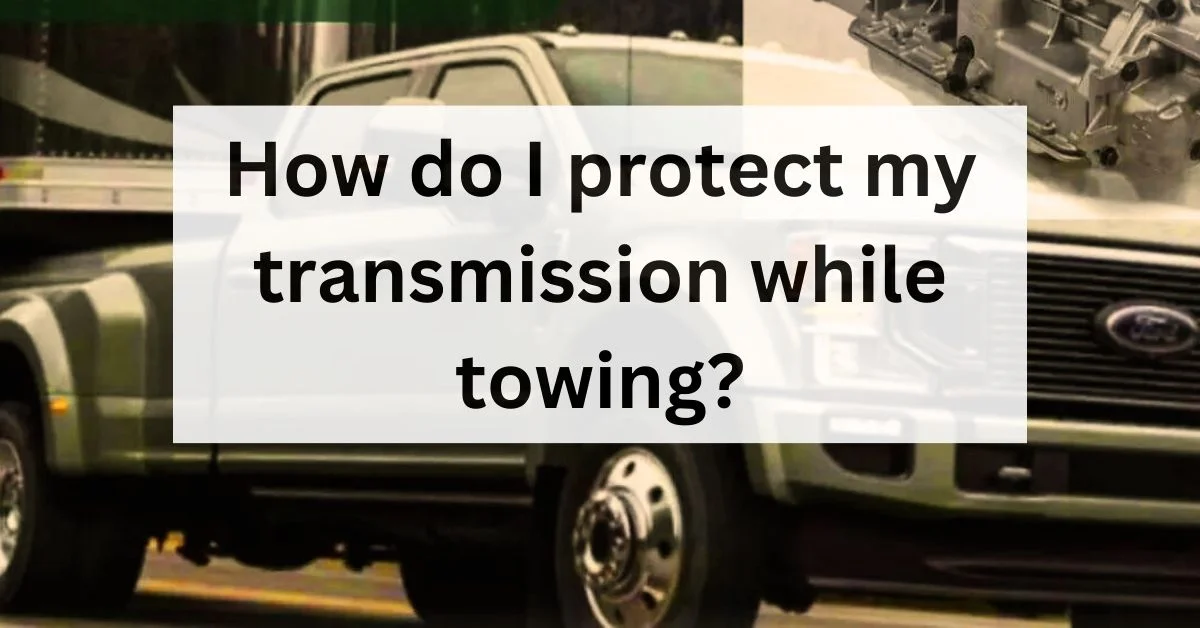Pickup trucks, SUVs, and other powerful vehicles are capable of handling towing jobs. You can tow trailers, campers, airstreams, RVs, and other equipment. Each vehicle has its own towing capacity.
Towing is one of the toughest jobs that results in additional stress to the tow vehicle. It can hurt the engine, and transmission system, if you tow exceeding the limit, or violate the safety guidelines. You can protect your transmission by driving safely, following the standard tow guidelines, regularly maintaining your vehicle and other safety practices.
There are towing guidelines, and safety checklists to use your tow vehicle safely. If you exceed the towing limit of your vehicle, it may result in many complications including transmission.
Table of Contents
So, How do I protect my transmission while towing? Let’s find out in this informative blog.
How do I protect my transmission while towing?
When you use your vehicle frequently for towing purposes, it creates additional stress on the engine, transmission, and other components. To protect useful components of your vehicle, you must handle the towing job carefully.
Here are the major tips to protect the transmission of your vehicle while towing.
Stay within the towing limit of your tow vehicle
The towing capacity of your vehicle is specified by your manufacturer. Your vehicle can also tow more than its capacity when equipped with towing packages.
While using your vehicle for towing purposes more than its limit, extra power is required which means the vehicle may develop stress. The developed stress might slowly affect the engine and transmission over time.
To protect the transmission, it is advised not to exceed the towing limit, violate the towing guidelines, or tow an unbalanced trailer.
Check Tire Pressure and Alignment
Faulty, and flat tires may result in significant damage to the transmission system. The engine of your tow vehicle works hard when towing with flat tires, and improper alignment. With that, the transmission system also gets affected negatively.
That’s why you need to check the tire pressure, and alignment before using your vehicle for towing purposes. Check the tire pressures and inflate within the limit if necessary. Standard tire pressure requirements can be found in the owner’s manual, and also in the driver’s doorjamb.
Drive Intelligently while towing
If you want to protect your transmission system and other important components of your tow vehicle, you should drive your vehicle carefully.
- Maintain Safe Speed
- Accelerate Slowly
- Use Brake Evenly
- Avoid sudden changes in direction
- Adjust your mirrors for a clear view
- Use Guidance Cameras if available
Ensure Scheduled maintenance of your vehicle
Scheduled maintenance is always important to keep your vehicle operational. If you don’t maintain your vehicle, it might not perform to its fullest. Frequent use of your vehicle for towing purposes puts extra stress on the engine, transmission system, and other components.
- Check the transmission components frequently.
- Check Transmission Fluid levels, and replace them if necessary.
- Ensure transmission components are working properly.
- Ensure efficient airflow from cooling fans.
- Conduct proper maintenance of the radiator and intercooler.
Prevent your Transmission System from Overheating
The transmission system of your tow vehicle gets overheated while towing a heavy load. Your vehicle needs to struggle more than in normal conditions resulting in additional stress to the engine, and transmission.
For instance, while climbing uphills with a heavy load, you must activate either first, or second gear, and apply more power. With that, the transmission tends to overheat.
To prevent your transmission system from overheating, follow these guidelines.
- Keep your engine above 3,000 RPM when climbing.
- Use the brake, and avoid scooting when you’re stuck in traffic.
- Check the engine condition of your vehicle.
- Rest your vehicle for some moment as soon as the engine starts to overheat.
- Ensure your transmission system is intact.
Conclusion
If you use your vehicle for towing purposes by not exceeding the maximum towing capacity, the stress developed in the vehicle is minimal. With that, the damage to the transmission is also minimal.
However, towing heavier loads greater than the rated capacity may directly increase stress on the vehicle’s transmission resulting in substantial damage. Besides, the vehicle components may get seriously damaged due to the stress generated by the towing.
That’s why you must follow the important guidelines discussed above to protect the transmission system of your vehicle while towing.
Frequently Asked Questions (FAQs)
Does towing damage an automatic transmission?
Towing heavy loads can put extra stress on your vehicle. Besides, improper handling and violation of towing guidelines can harm the automatic, and manual transmission systems.
Does Flat towing hurt transmission?
During flat-towing, your engine is not running, and the input shaft does not spin. The rotating rear wheels spin the main shaft even during neutral conditions. It causes damage to the transmission system.
Stellan Carter is an accomplished writer, entrepreneur, and avid Ford Raptor owner. As a co-founder and content contributor for this renowned blog website, Stellan brings a wealth of knowledge and expertise to the automotive industry. When he's not behind the wheel of his beloved Ford Raptor, Stellan can be found exploring new terrains, capturing the essence of his automotive adventures through his camera lens.

